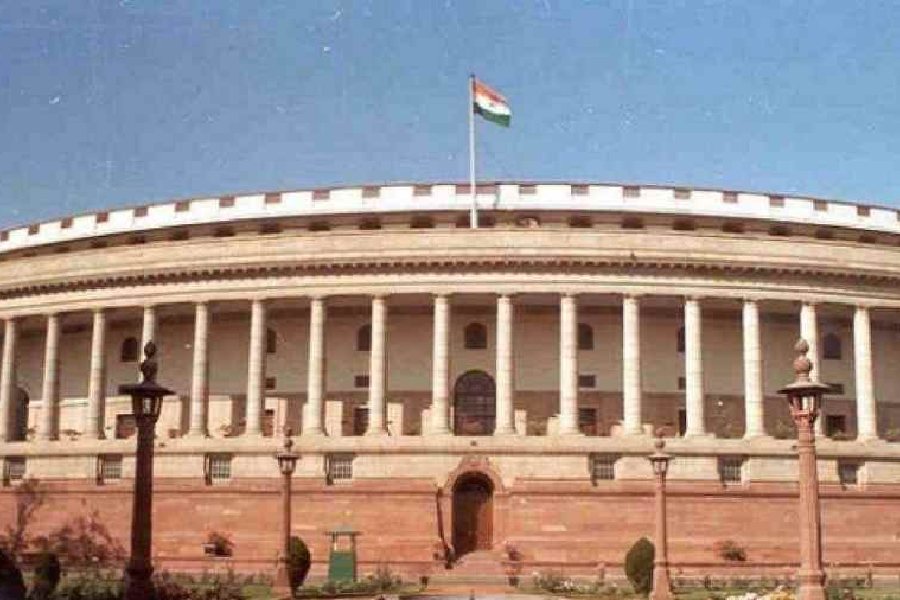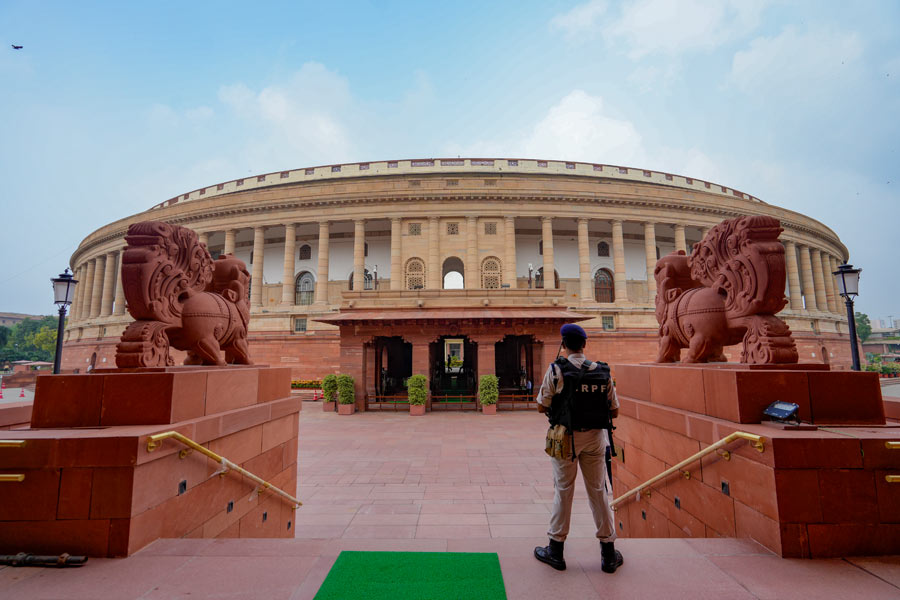The Narendra Modi government on Thursday made a surprise announcement that a five-day “special session” of Parliament would be convened in the second half of September but remained tight-lipped on the agenda, leaving the field open to speculation over its political intentions ahead of the election year.
The special session announcement was timed with the third meeting of the Opposition INDIA parties in Mumbai and the fresh revelations on the Adani group, leading many to suspect that apart from the undisclosed agenda, the immediate motive was to divert attention from the unpalatable events.
“Special Session of Parliament is being called from 18th to 22nd September having 5 sittings. Amid Amrit Kaal, looking forward to having fruitful discussions and debate in Parliament,” parliamentary affairs minister Pralhad Joshi posted on X (formerly Twitter), making the announcement post-noon.
The Opposition termed it as yet another “Modi-style” management effort. “Managing the News Cycle, Modi-style,” said Congress’s media department head Jairam Ramesh. “News today has been dominated by the latest revelations on the Modani scam. Tomorrow the ever-growing INDIA parties meet in Mumbai. How to counter? Announce a 5-day special session of Parliament when Monsoon session has just ended 3 weeks back,” Ramesh posted on X.
The reference to Amrit Kaal in the minister’s post was seen by some as an indication that Modi could be planning to use the special session to tomtom that India has emerged as a “Vishwa Guru (world leader)” under him, post the G20 meeting in Delhi and the success of the moon mission, Chandrayaan-3. The special session has been scheduled a week after the G20 meeting.
A bunch of state elections are scheduled later this year, to be followed by the Lok Sabha polls next year. Sections of BJP leaders felt that Modi could be planning to use the special session to set a favourable narrative amid the Opposition’s build-up against him.
Sources in the Lok Sabha secretariat said that the special session could be held in the new Parliament building to underline the message of Modi’s slogan of “New India”, breaking free of the symbols of the colonial past.
The old Parliament building, where the monsoon session was held recently, was constructed by Britishers.
The new Parliament building was inaugurated by Modi in May but no sitting has been held there so far.
The five-day duration of the session, considered too long for only drumbeating, led many in the establishment to speculate that a bill or bills could be pushed through in the session with an eye on the general election next year.
“Apart from discussing the success of the G20 and the Chandrayaan mission, some important bills could also be passed during the session,” a BJP leader said while making it clear that he was only speculating and that nobody apart from the “top leadership” had any clear idea.
Speculation was rife through the evening that one of Modi’s pet projects — simultaneous polls under a “one nation, one election bill” — could be pursued. But several officials downplayed such a possibility, pointing out that implementing it would require not only a constitutional amendment but also approval by 50 per cent of the state legislatures.
Given Modi’s knack for setting a favourable election agenda, sections of BJP leaders felt that the women’s reservation bill could be passed to reserve 33 per cent of the seats in Parliament and Assemblies for women.
Women’s reservation could serve the twin purposes of Modi taking credit for fulfilling the long-pending demand and, at the same time, using it to drive a wedge in the Opposition INDIA grouping.
Nudged by Sonia Gandhi, the Congress has been a strong proponent of women’s reservation but Mandal-driven regional parties like the RJD and the Samajwadi Party have been firmly opposing the bill and demanding quota for deprived sections of women within the larger reservation bill.
The UPA government had got the bill passed in the Rajya Sabha in 2010 but could not get it through the Lok Sabha because of militant opposition from the Mandal parties. The BJP too had backed the bill then.
Another theory was that the government could bring a bill on the sub-categorisation of Other Backward Classes (OBCs) in a bid to counter the caste census demand of the Mandal parties. After almost six years and 14 extensions, a commission set up by the Modi government on the sub-categorisation of OBCs submitted its report in early August.
The agenda of the Rohini Commission was to divide the OBCs into sub-groups and apportion the 27 per cent OBC quota among them based on each community’s population to ensure equitable distribution. The commission was set up amid complaints that better-off castes (like Yadavs and Kurmis) were cornering the quota benefits and depriving the weaker castes, termed as most backward or extremely backward.
The BJP had dithered in pushing the sub-categorisation, fearing it could antagonise stronger OBCs and cause political damage. However, with the Mandal parties now pushing for a caste census to determine the sub-categorisation and the distribution of benefits — and the Congress backing it — the BJP could use the bill to counter the demand and project itself as a champion of the deprived sections.











